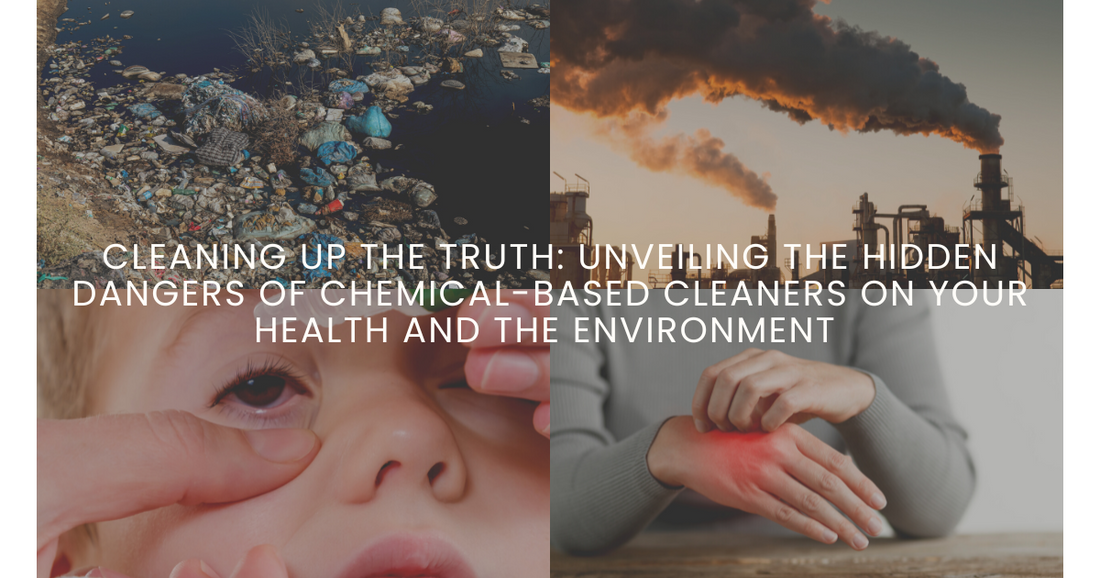In our quest for sparkling clean homes and workplaces, we often turn to chemical-based cleaners without realising the potential harm they can cause. While these cleaners may effectively remove dirt and grime, their hidden dangers extend beyond the immediate cleaning process. In this blog, we will explore the detrimental effects of chemical-based cleaners on both human health and the environment. By understanding these risks, we can make informed choices and adopt safer alternatives that promote a healthier and more sustainable lifestyle.
Health Risks
Chemical-based cleaners contain a combination of potentially harmful substances that can pose the following risks to our health:
A. Respiratory Problems
Many cleaners release volatile organic compounds (VOCs) into the air, which can irritate the respiratory system and trigger asthma or allergies. Long-term exposure to these chemicals has also been linked to respiratory disorders and even lung cancer.
B. Skin Irritation
Certain cleaning agents can cause skin irritation, dermatitis, and allergic reactions. Prolonged exposure to harsh chemicals may lead to dryness, redness, and even chemical burns.
C. Eye Irritation
The fumes and splashes from chemical cleaners can cause severe eye irritation, leading to redness, watering, and, in extreme cases, damage to the cornea.
D. Hormonal Disruption
Some chemicals found in cleaning products, such as phthalates and parabens, are known endocrine disruptors. They can interfere with the body's hormonal balance and have been linked to reproductive issues, developmental disorders, and even certain types of cancer.
Environmental Impact
The use and disposal of chemical-based cleaners also takes a toll on our environment. Here are some of the harmful effects of chemical-based cleaners to our environment:
A. Water Pollution
When chemical cleaners are rinsed down the drain, they find their way into our water systems. The harmful substances can contaminate rivers, lakes, and oceans, disrupting aquatic ecosystems and endangering marine life.
B. Air Pollution:
VOCs released during cleaning can contribute to indoor and outdoor air pollution. These pollutants can react with sunlight and other compounds, leading to the formation of smog and contributing to respiratory problems in humans and animals.
C. Landfill Accumulation:
Most conventional cleaning products come in non-recyclable plastic containers, which often end up in landfills. The accumulation of these containers further adds to the waste management problem, as they take hundreds of years to decompose.
While chemical-based cleaners may promise a clean and fresh environment, their hidden dangers cannot be ignored. The risks they pose to human health and the environment far outweigh the short-term benefits. By opting for safer alternatives and embracing eco-friendly practices, we can protect ourselves, our loved ones, and the planet. Switch to Haus Natural now and together we will make a conscious choice to clean without compromise, ensuring a healthier and more sustainable future for all.
